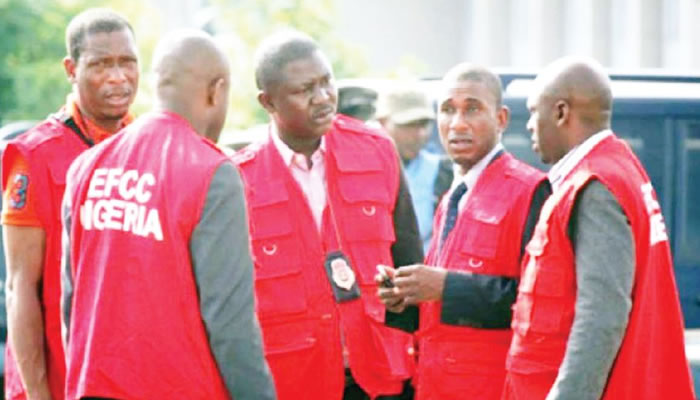Refinery Scandal Unfolds: N80bn Found in Account of Sacked NNPCL Executive Amid $3bn Fraud Probe
In a deepening saga of alleged corruption and failed promises, the Economic and Financial Crimes Commission (EFCC) has arrested former managing directors of Nigeria’s three major state-owned refineries—Port Harcourt, Warri, and Kaduna—over the mismanagement of nearly $3 billion allocated for the facilities’ long-awaited rehabilitation.
The arrest of the sacked refinery chiefs follows explosive revelations that N80 billion was uncovered in the personal bank accounts of one of the ex-MDs, sending shockwaves through Nigeria’s oil and gas sector. The former Port Harcourt Refining Company boss, Ibrahim Onoja, and Warri Refinery’s Efifia Chu, are among those in custody, with further arrests anticipated.
Documents show that $1.56 billion was allocated for Port Harcourt, $740.6 million for Kaduna, and $656.9 million for Warri under the federal government’s ambitious refinery revival plan. Yet, after celebratory recommissioning events in late 2024, the results have been dismal.
The Warri refinery, which cost $897 million to revamp, shut down less than a month after restarting due to safety issues with its Crude Distillation Unit Main Heater. Similarly, the Port Harcourt plant, upgraded for $1.5 billion, is functioning at less than 40% capacity despite earlier claims of robust operations.
Industry analysts and energy experts are accusing the Nigerian National Petroleum Company Limited (NNPCL) of misleading the public. “The commissioning was a charade,” said analyst Kelvin Emmanuel, calling out the government for staging a political show while failing to deliver real production. He noted the refineries lack vital components, including catalytic reformers necessary for converting Naphtha into petrol.
“The Warri refinery cannot refine without crude feedstock. The pipeline from Escravos is down. Where’s the crude coming from?” Emmanuel questioned on Arise News, further highlighting that most refined products are still being sourced from Lagos-based private depots.
A letter dated April 28, 2025, confirmed that the probe now extends to the former NNPCL Group CEO, Mele Kyari, and 13 other top executives. The EFCC is demanding full records of salaries, allowances, and benefits of the listed officials, some of whom have retired.
The EFCC has remained tight-lipped, while NNPCL’s spokesman Olufemi Soneye has not responded to inquiries regarding the growing scandal.
Adding to the chaos, refinery support staff have threatened an indefinite strike beginning May 5, 2025, over casual employment, poor remuneration, and unfulfilled promises. The move could derail NNPCL’s planned restart of critical units at Warri refinery in May.
Support staff leader Dafe Ighomitedo revealed that workers have been protesting since 2015 and were promised better wages once the refinery became operational—a promise still unmet.
The Independent Petroleum Marketers Association of Nigeria (IPMAN) and the Petroleum Products Retail Outlet Owners Association of Nigeria (PETROAN) have both voiced frustration. IPMAN’s Harry Okenini lamented that no products have been lifted from Warri refinery since January, forcing dealers to rely on expensive private depots.
PETROAN President Billy Gillis-Harry defended earlier statements about the refinery’s readiness, insisting that technical inspections during site visits had shown progress.
Once symbols of Nigeria’s industrial promise, the three refineries are now at the heart of a scandal exposing alleged financial recklessness, false public narratives, and systemic failure.
Despite multiple multi-billion dollar interventions over the years, none of the facilities currently produce fuel at scale. Industry insiders say the fallout from this latest probe could rival or even surpass the infamous “Emefielegate” case.
As Nigerians grapple with skyrocketing fuel prices and rising distrust, all eyes remain on the EFCC and the new NNPCL leadership to enforce accountability and chart a credible path forward.

